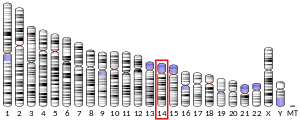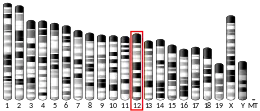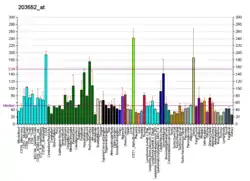| MAP4K5 | |||||||||||||||||||||||||||||||||||||||||||||||||||
|---|---|---|---|---|---|---|---|---|---|---|---|---|---|---|---|---|---|---|---|---|---|---|---|---|---|---|---|---|---|---|---|---|---|---|---|---|---|---|---|---|---|---|---|---|---|---|---|---|---|---|---|
| Identifiers | |||||||||||||||||||||||||||||||||||||||||||||||||||
| Aliases | MAP4K5, GCKR, KHS, KHS1, MAPKKKK5, mitogen-activated protein kinase kinase kinase kinase 5 | ||||||||||||||||||||||||||||||||||||||||||||||||||
| External IDs | OMIM: 604923 MGI: 1925503 HomoloGene: 38199 GeneCards: MAP4K5 | ||||||||||||||||||||||||||||||||||||||||||||||||||
| |||||||||||||||||||||||||||||||||||||||||||||||||||
| |||||||||||||||||||||||||||||||||||||||||||||||||||
| |||||||||||||||||||||||||||||||||||||||||||||||||||
| |||||||||||||||||||||||||||||||||||||||||||||||||||
| |||||||||||||||||||||||||||||||||||||||||||||||||||
| Wikidata | |||||||||||||||||||||||||||||||||||||||||||||||||||
| |||||||||||||||||||||||||||||||||||||||||||||||||||
Mitogen-activated protein kinase kinase kinase kinase 5 is an enzyme that in humans is encoded by the MAP4K5 gene.[5][6][7]
This gene encodes a member of the serine/threonine protein kinase family, that is highly similar to yeast SPS1/STE20 kinase. Yeast SPS1/STE20 functions near the beginning of the MAP kinase signal cascades that is essential for yeast pheromone response. This kinase was shown to activate Jun kinase in mammalian cells, which suggested a role in stress response. Two alternatively spliced transcript variants encoding the same protein have been described for this gene.[7]
Interactions
MAP4K5 has been shown to interact with CRKL[8] and TRAF2.[9]
References
- 1 2 3 GRCh38: Ensembl release 89: ENSG00000012983 - Ensembl, May 2017
- 1 2 3 GRCm38: Ensembl release 89: ENSMUSG00000034761 - Ensembl, May 2017
- ↑ "Human PubMed Reference:". National Center for Biotechnology Information, U.S. National Library of Medicine.
- ↑ "Mouse PubMed Reference:". National Center for Biotechnology Information, U.S. National Library of Medicine.
- ↑ Tung RM, Blenis J (March 1997). "A novel human SPS1/STE20 homologue, KHS, activates Jun N-terminal kinase". Oncogene. 14 (6): 653–9. doi:10.1038/sj.onc.1200877. PMID 9038372.
- ↑ Schultz SJ, Nigg EA (February 1994). "Identification of 21 novel human protein kinases, including 3 members of a family related to the cell cycle regulator nimA of Aspergillus nidulans". Cell Growth Differ. 4 (10): 821–30. PMID 8274451.
- 1 2 "Entrez Gene: MAP4K5 mitogen-activated protein kinase kinase kinase kinase 5".
- ↑ Shi CS, Tuscano J, Kehrl J H (February 2000). "Adaptor proteins CRK and CRKL associate with the serine/threonine protein kinase GCKR promoting GCKR and SAPK activation". Blood. UNITED STATES. 95 (3): 776–82. doi:10.1182/blood.V95.3.776.003k23_776_782. ISSN 0006-4971. PMID 10648385. S2CID 22593342.
- ↑ Shi CS, Leonardi A, Kyriakis J, Siebenlist U, Kehrl J H (September 1999). "TNF-mediated activation of the stress-activated protein kinase pathway: TNF receptor-associated factor 2 recruits and activates germinal center kinase related". J. Immunol. UNITED STATES. 163 (6): 3279–85. doi:10.4049/jimmunol.163.6.3279. ISSN 0022-1767. PMID 10477597.
Further reading
- Oehrl W, Kardinal C, Ruf S, et al. (1998). "The germinal center kinase (GCK)-related protein kinases HPK1 and KHS are candidates for highly selective signal transducers of Crk family adapter proteins". Oncogene. 17 (15): 1893–901. doi:10.1038/sj.onc.1202108. PMID 9788432.
{{cite journal}}: CS1 maint: overridden setting (link) - Shi CS, Tuscano JM, Witte ON, Kehrl JH (1999). "GCKR links the Bcr-Abl oncogene and Ras to the stress-activated protein kinase pathway". Blood. 93 (4): 1338–45. doi:10.1182/blood.V93.4.1338. PMID 9949177.
- Shi CS, Leonardi A, Kyriakis J, et al. (1999). "TNF-mediated activation of the stress-activated protein kinase pathway: TNF receptor-associated factor 2 recruits and activates germinal center kinase related". J. Immunol. 163 (6): 3279–85. doi:10.4049/jimmunol.163.6.3279. PMID 10477597.
{{cite journal}}: CS1 maint: overridden setting (link) - Chin AI, Shu J, Shan Shi C, et al. (2000). "TANK Potentiates Tumor Necrosis Factor Receptor-Associated Factor-Mediated c-Jun N-Terminal Kinase/Stress-Activated Protein Kinase Activation through the Germinal Center Kinase Pathway". Mol. Cell. Biol. 19 (10): 6665–72. doi:10.1128/mcb.19.10.6665. PMC 84649. PMID 10490605.
{{cite journal}}: CS1 maint: overridden setting (link) - Shi CS, Tuscano J, Kehrl JH (2000). "Adaptor proteins CRK and CRKL associate with the serine/threonine protein kinase GCKR promoting GCKR and SAPK activation". Blood. 95 (3): 776–82. doi:10.1182/blood.V95.3.776.003k23_776_782. PMID 10648385. S2CID 22593342.
- Strausberg RL, Feingold EA, Grouse LH, et al. (2003). "Generation and initial analysis of more than 15,000 full-length human and mouse cDNA sequences". Proc. Natl. Acad. Sci. U.S.A. 99 (26): 16899–903. Bibcode:2002PNAS...9916899M. doi:10.1073/pnas.242603899. PMC 139241. PMID 12477932.
{{cite journal}}: CS1 maint: overridden setting (link) - Shi CS, Kehrl JH (2003). "Tumor necrosis factor (TNF)-induced germinal center kinase-related (GCKR) and stress-activated protein kinase (SAPK) activation depends upon the E2/E3 complex Ubc13-Uev1A/TNF receptor-associated factor 2 (TRAF2)". J. Biol. Chem. 278 (17): 15429–34. doi:10.1074/jbc.M211796200. PMID 12591926.
- Ota T, Suzuki Y, Nishikawa T, et al. (2004). "Complete sequencing and characterization of 21,243 full-length human cDNAs". Nat. Genet. 36 (1): 40–5. doi:10.1038/ng1285. PMID 14702039.
{{cite journal}}: CS1 maint: overridden setting (link) - Gerhard DS, Wagner L, Feingold EA, et al. (2004). "The Status, Quality, and Expansion of the NIH Full-Length cDNA Project: The Mammalian Gene Collection (MGC)". Genome Res. 14 (10B): 2121–7. doi:10.1101/gr.2596504. PMC 528928. PMID 15489334.
{{cite journal}}: CS1 maint: overridden setting (link) - Rual JF, Venkatesan K, Hao T, et al. (2005). "Towards a proteome-scale map of the human protein-protein interaction network". Nature. 437 (7062): 1173–8. Bibcode:2005Natur.437.1173R. doi:10.1038/nature04209. PMID 16189514. S2CID 4427026.
{{cite journal}}: CS1 maint: overridden setting (link) - Gu Y, Luo T, Yang J, et al. (2006). "The -822G/A polymorphism in the promoter region of the MAP4K5 gene is associated with reduced risk of type 2 diabetes in Chinese Hans from Shanghai". J. Hum. Genet. 51 (7): 605–10. doi:10.1007/s10038-006-0402-9. PMID 16699725.
{{cite journal}}: CS1 maint: overridden setting (link) - Wissing J, Jänsch L, Nimtz M, et al. (2007). "Proteomics analysis of protein kinases by target class-selective prefractionation and tandem mass spectrometry". Mol. Cell. Proteomics. 6 (3): 537–47. doi:10.1074/mcp.T600062-MCP200. hdl:10033/19756. PMID 17192257.
{{cite journal}}: CS1 maint: overridden setting (link)
This article is issued from Wikipedia. The text is licensed under Creative Commons - Attribution - Sharealike. Additional terms may apply for the media files.





